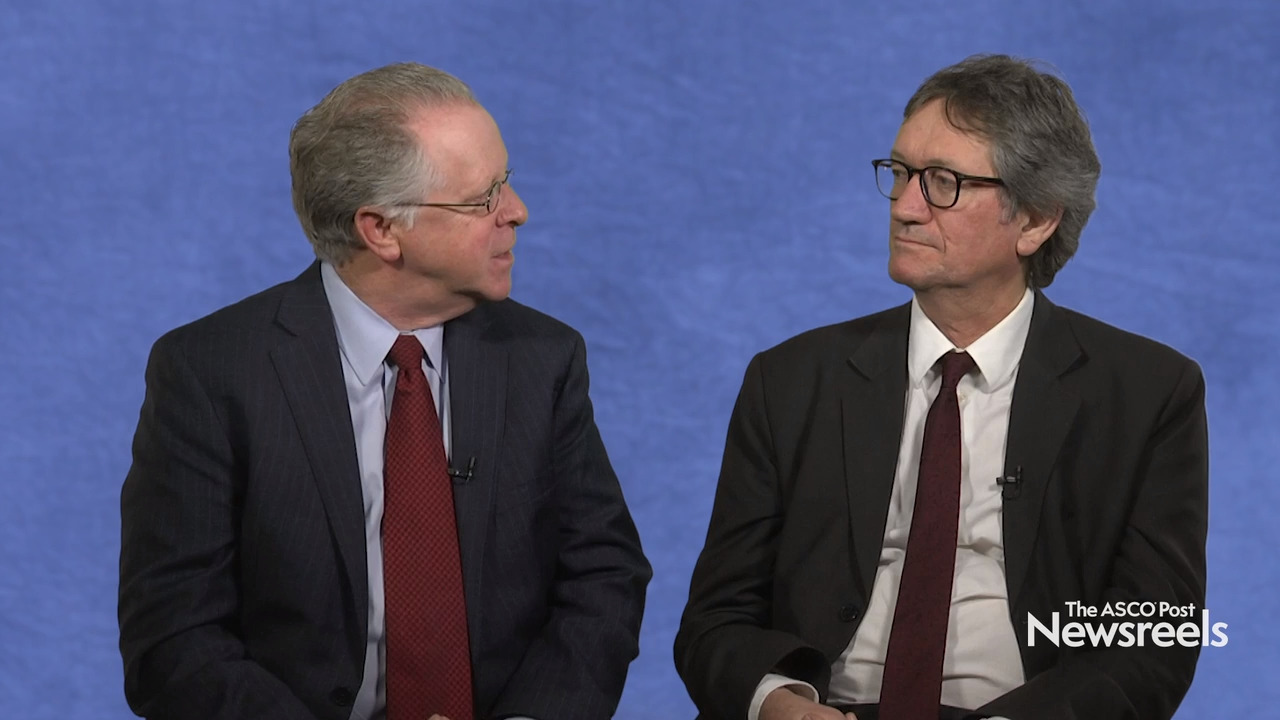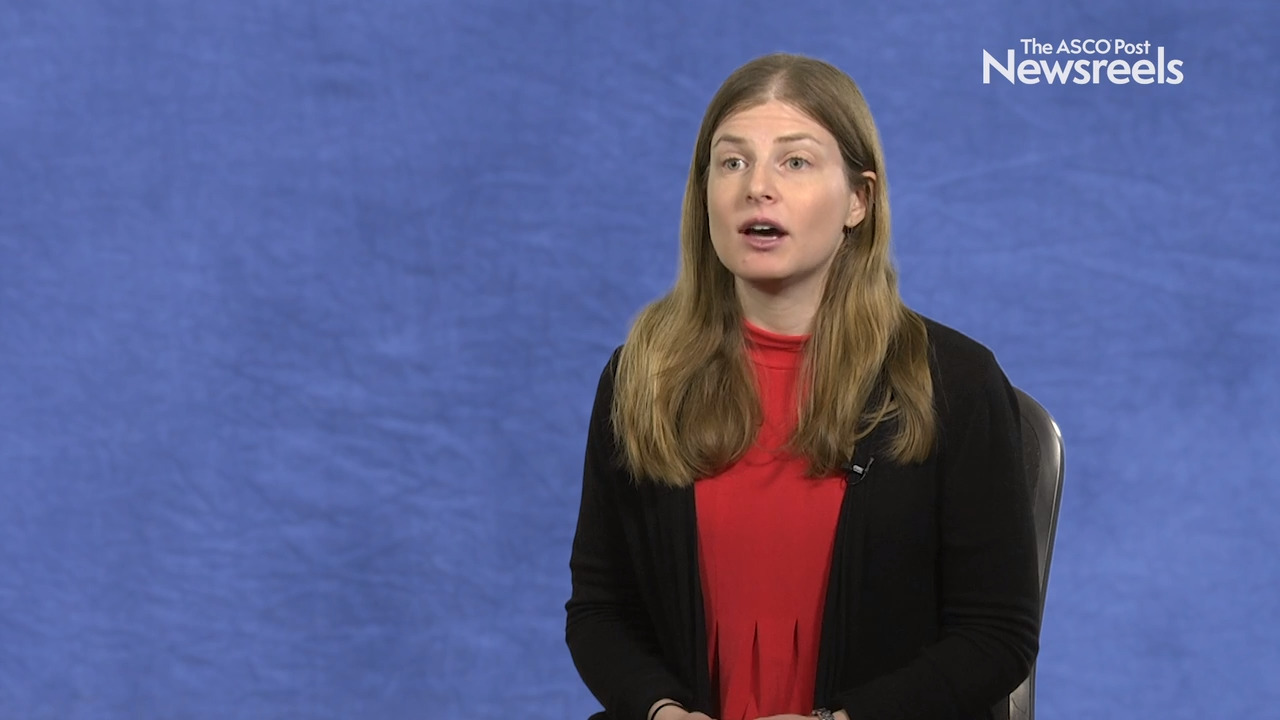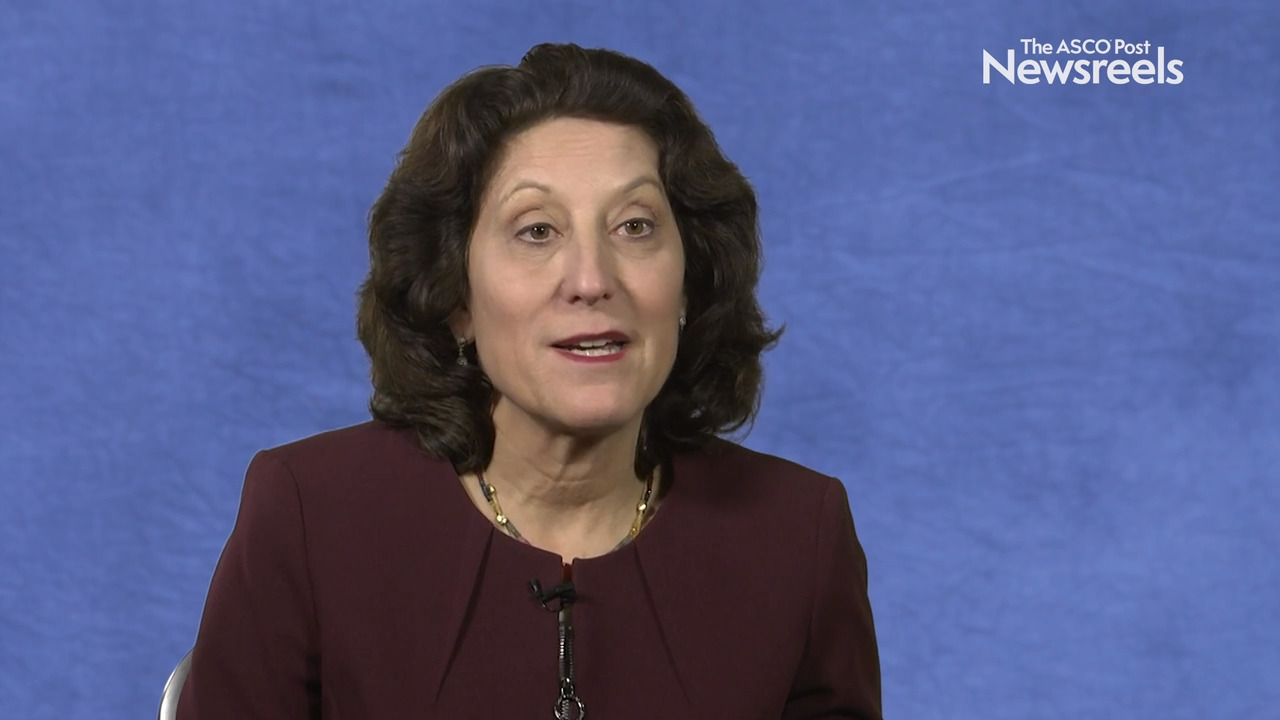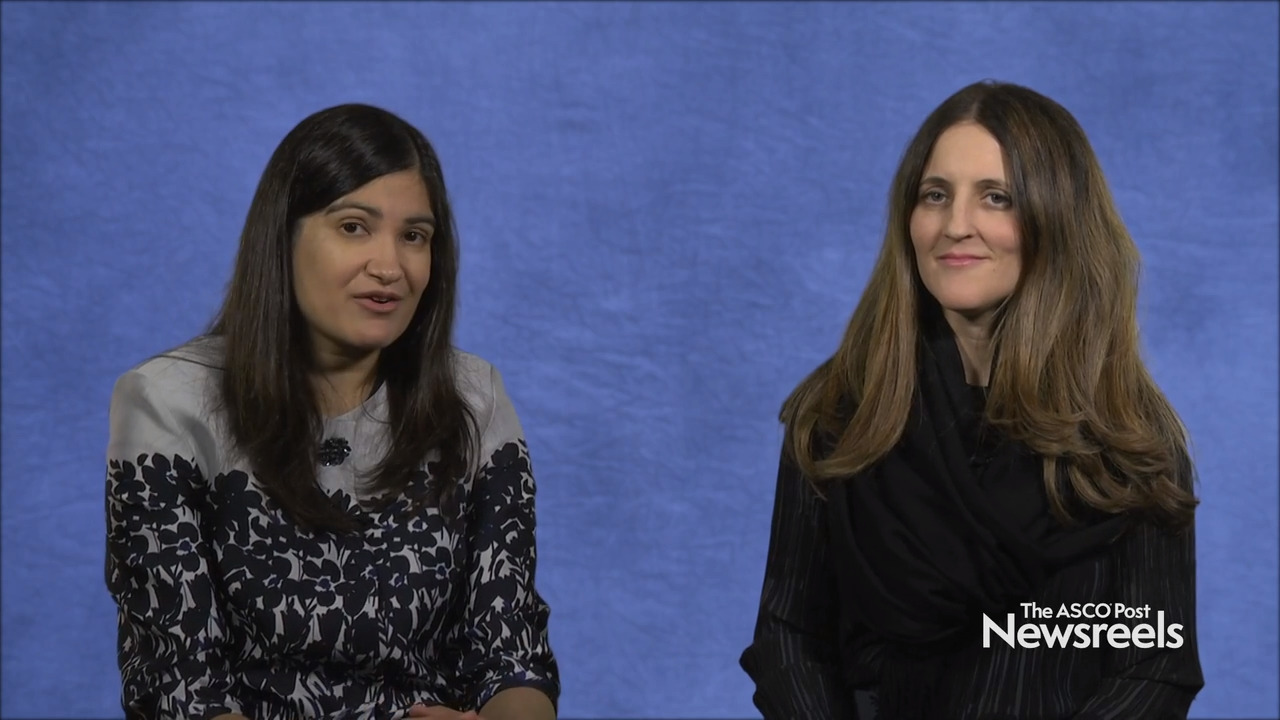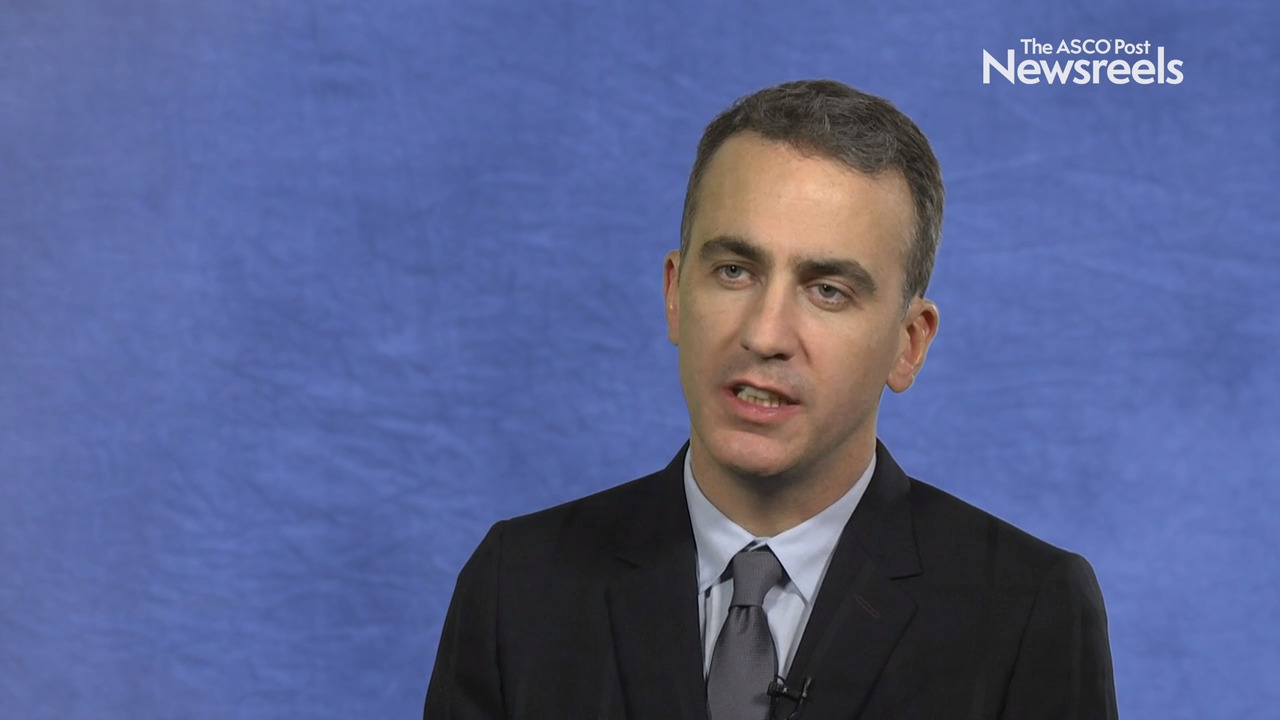Judy E. Garber, MD, on Cancer Genetics: Updates for Breast Cancer Care
2018 San Antonio Breast Cancer Symposium
Judy E. Garber, MD, of the Dana-Farber Cancer Institute, summarizes a special session she moderated, which included discussion of polygenic risk scores, genetic testing in diverse populations, and what to do when presented with moderate-penetrance mutations.
Andrew D. Seidman, MD, of Memorial Sloan Kettering Cancer Center, and Richard G. Gray, MA, MSc, of the University of Oxford, discuss a meta-analysis of individual patient data from 12 randomized trials including 24,912 women on the effects—in terms of recurrence and cause-specific mortality—of prolonging adjuvant aromatase inhibitor therapy beyond 5 years (Abstract GS3-03).
Shoshana M. Rosenberg, ScD, of Dana-Farber Cancer Institute, discusses her study findings on the lower quality of life associated with mastectomy, and the need for intervention and timely referrals to supportive resources, especially for underserved populations (Abstract GS6-04).
Hope S. Rugo, MD, of the University of California, San Francisco, summarizes a spotlight session she chaired, which included discussion of new immunotherapy drug combinations, predictive factors, and the immune microenvironment.
Reshma Jagsi, MD, DPhil, of the University of Michigan, and Rachel A. Freedman, MD, MPH, of Dana-Farber Cancer Institute, discuss the twin challenges of overtreating people with cancer and the missed opportunities and dangers of undertreatment.
François-Clément Bidard, MD, PhD, of the Institut Curie and the University of Versailles, discusses phase III study findings on the clinical utility of circulating tumor cell count as a tool to choose between first-line hormone therapy and chemotherapy for estrogen receptor–positive, HER2-negative metastatic breast cancer (Abstract GS3-07).
